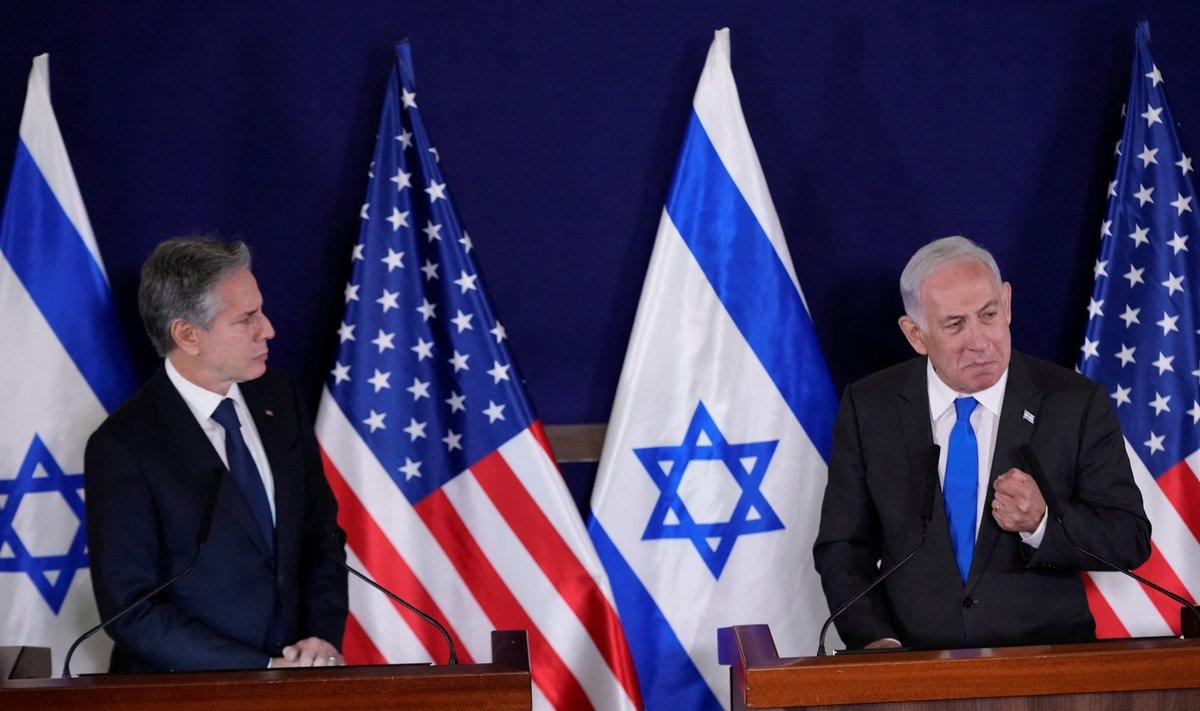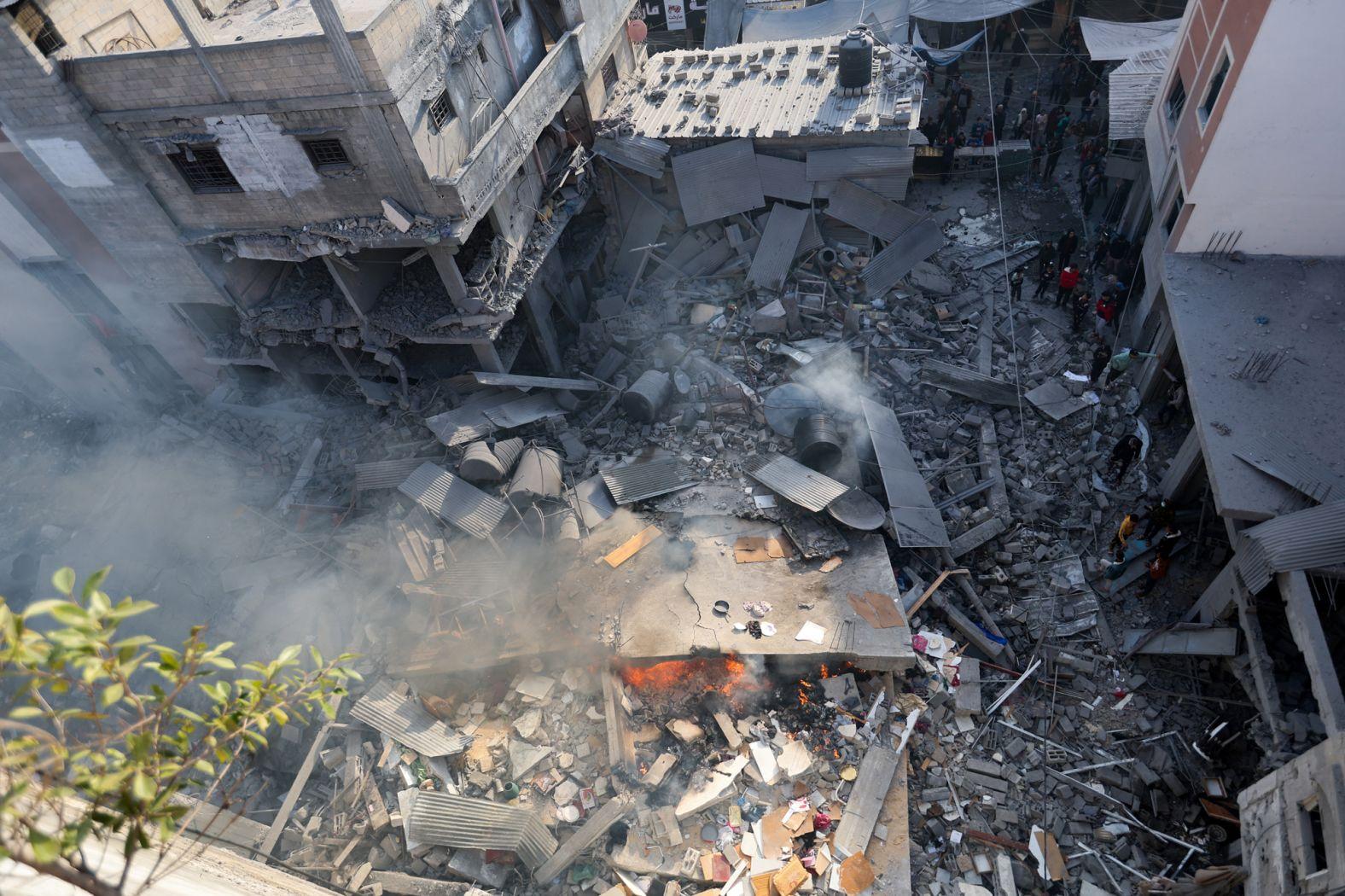What will post-war Gaza look like? Elusive scenarios
With the war in Gaza about to enter its third month, discussions are intensifying about what will happen in the enclave once the bombs eventually stop falling. At the weekend, an Israeli official suggested the country could try to create a buffer zone within the Palestinian territory that would stop militants from getting into Israel again.
To make it look more legitimate, Israel has informed several Arab states that it wants to carve out a buffer zone on the Palestinian side of Gaza's border. Israel is keen to complete the process of securitization for future attacks as part of proposals for the enclave after the war ends.
But what is Israel’s plan for Gaza if and when it achieves its aim of eliminating Hamas? Some argue that Israel may not have a clear idea. Israel has clearly stated security objectives and imperatives for post-war Gaza, but so far, they have not offered anything like a viable plan for the aftermath.
Amid speculations, the U.S. is taking a leading role in shaping the parameters of a future Gaza Strip, and President Joe Biden's administration is growing increasingly critical of Israel's offensive that has killed more than 15,500 people, according to local authorities.
According to the local media, the Biden administration officials have spent weeks quietly drafting a multiphase postwar game plan that envisions a revamped Palestinian Authority ultimately taking over the Gaza Strip. Seemingly, American officials view it as the best of only bad options for a territory where a war between Israel and Hamas militants has shattered infrastructure, killed thousands of Palestinians and displaced more than 1.5 million others.

Although controversial, this scenario completely matches the interests of the Palestinian Authority and its leader, Mahmoud Abbas, who long attempted to get rid of the Hamas government in Gaza. Also, critical parts of the plan include increasing security-related aid that the State Department's Bureau of International Narcotics and Law Enforcement Affairs offers the Palestinian Authority and allowing for a more significant role for the U.S. Security Coordinator, which has a track record of advising Palestinian security forces.
Therefore, Mahmoud Abbas feels comfortable with the U.S. push to install a “revitalized” Palestinian Authority as Gaza’s administrator, but it is an unpopular idea with the Israeli government and even among many Palestinians.
After more than 15 years in power in Gaza, Hamas and its supporters are deeply embedded in every sector of society — not only in the government ministries they run but also in charities, courts, mosques, sport teams, jails, municipalities and youth groups. Israel has objected to the Palestinian Authority (P.A.) ruling Gaza and insists on leading postwar security.
Accordingly, Arab allies have been hesitant to embrace U.S. proposals to contribute to an international force that would help manage Gaza's security for an interim period until the P.A. can take over. Moreover, Netanyahu’s continued "rejectionist" approach regarding post-war Gaza planning is further contributing to the chilly Arab response to the U.S. proposals.

Indeed, Israel would maintain security responsibility for Gaza for an indefinite period because Tel Aviv has seen what happens when it does not have that security responsibility. In addition, an international force will be needed to stabilize the region in the immediate aftermath.
Despite the U.S. enthusiasm, it is unlikely that the P.A. will not return to Gaza on Israeli assurances and guarantees, which will further diminish its legitimacy among Palestinians and other Muslims. For its part, the P.A. will attempt to get more concessions from the Western allies to address the grievances of civilian Palestinians. After the conflict ends, a stable transition in Gaza will need to find a way to permit demilitarization with a mechanism to ensure there can't be any rearming of anybody.
For the time being, Israel remains focused on the military operation. Benjamin Netanyahu knows that his own fate hangs on this war, refuses to sketch out the future, and seeks to avoid alienating the firebrand far right to which he has tied his fate.
Regardless of the results of the operation, Israel will unlikely govern Gaza for a long period as it will mount international pressure on it and strain relations with other Muslim countries. Nevertheless, with the military operation in Gaza, Israel would gain whatever it can in the interim.








